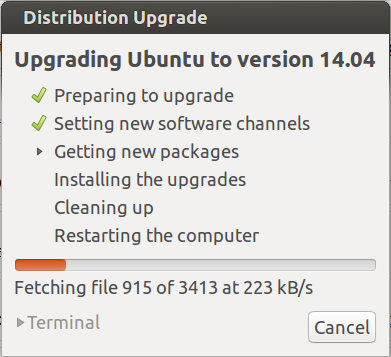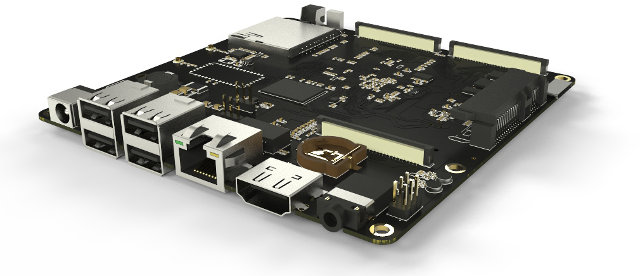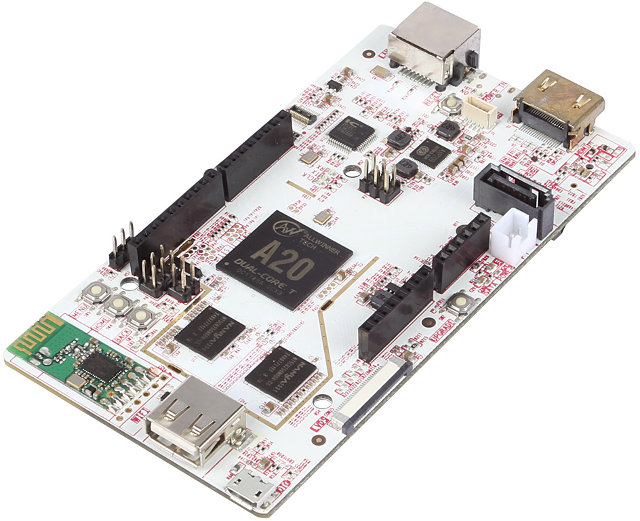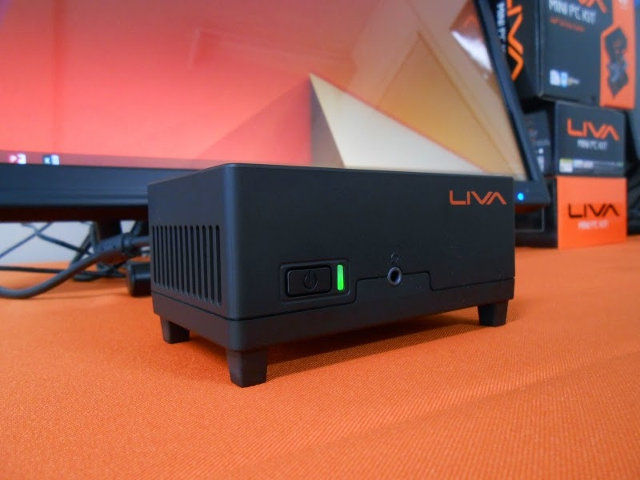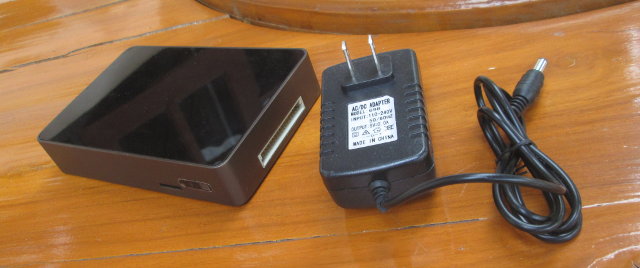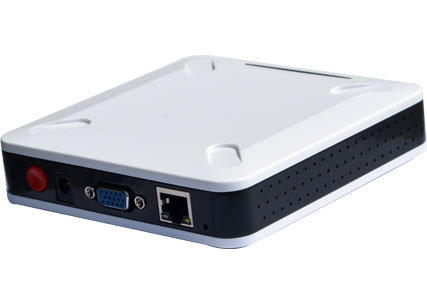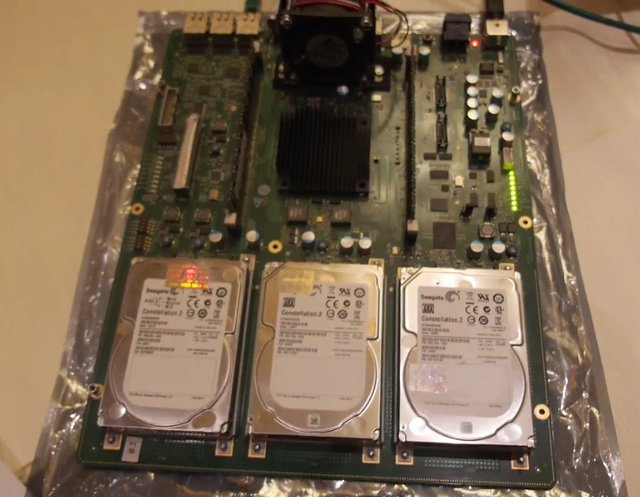Every two years, Canonical releases Long Term Support (LTS) version of Ubuntu Linux based operating systems. The previous version was Ubuntu 12.04 LTS “Precise Pangolin”, and the latest Ubuntu 14.04 LTS “Trusty Tahr” has just been released with a 5 year support commitment for bug fixes and security patches. The company also releases other version every 6 months without long term support. There has not been major changes to this version, at least compared to Ubuntu 13.10, with the development team focusing on performance and stability improvements. For the first time, this LTS release also includes Kubuntu, Edubuntu, Xubuntu, Lubuntu, Ubuntu GNOME, Ubuntu Kylin, and Ubuntu Studio. It is also the first long-term support release to support “arm64” architecture for 64-bit ARM systems. Some notable others changes for Ubuntu Desktop include: Support for High-DPI screens and desktop scaling New screen saver and lock screen New window decorations, with improved appearance […]
Mixtile LOFT-Q Board and LOFT Kit mini PC Powered by AllWinner A31
Recently most development around AllWinner, at least for Linux, is focusing on AllWinner A20, and there are several AllWinner A20 board and development platforms available on the market such as Cubieboard2, A20-OLinuXino, IBOX and more. But apart from the team at Free Electrons, few people seem to be working on AllWinner A31, so there are few development platform available, if we exclude consumer products such as tablets and Android TV Boxes. There’s now an AllWinner A31 development board thanks to Mixtile LOFT-Q board, which also comes in LOFT Kit to make a complete mini PC with enclosure. Mixtile LOFT-Q specifications: SoC – Allwinner A31 quad core ARM Cortex-A7 processor with PowerVR SGX544 MP2 GPU System Memory – 2GB 64-bit DDR3 Storage – 8GB eMMC (ver 4.51), SATA III connector for 2.5″ drives, and SD card Slot Video Output – HDMI 1.4 up to 1080p Audio I/O – HDMI, 1 headphone/TOSLINK […]
pcDuino3 Development Board Features AllWinner A20 SoC, Arduino Headers
The first pcDuino board powered by AllWinner A10 has been available for about a year, later last year pcDuino V2 was released with a built-in Wi-Fi modules and mechanically and software compatible Arduino headers, and now pcDuino3 has been announced in a form factor similar to pcDuino V2 board but replacing AllWinner A10 Cortex A8 SoC with AllWinner A20 dual core Cortex A7, and improving overall specs such as faster Ethernet, the addition of a SATA port, and LiPo support. pcDuino3 specifications: SoC – AllWinner A20 dual core ARM Cortex A7 @ 1.0 GHz, with Mali 400MP2 GPU System Memory – 1GB DRAM Storage – 4GB NAND Flash, SATA connector, and microSD card slot (up to 32GB) Video Output – HDMI 1.4 with HDCP support, LVDS header Audio Out – 3.5mm analog audio interface, I2S stereo digital audio interface Connectivity – WiFi, 10/100M Ethernet USB – 1x USB host, 1x […]
Linaro 14.03 Release with Linux Kernel 3.14 and Android 4.4.2
Linaro 14.03 has just been released with Linux Kernel 3.14-rc7 (baseline), Linux Kernel 3.10.33 (LSK), and Android 4.4.2. This month, I could not find any major changes or updates, but work has been performed on big.LITTLE, Samsung Arndale / Arndale-octa, HiSilicon K3V2 and D01 boards and Broadcom Capri hardware, as well as ARMv8 models. Here are the highlights of this release: Linaro Stable Kernel (LSK) 3.10.33-2014.03 big.LITTLE support – ARM MP patch set, IKS (ARMv7 only). Interactive scheduler enhancements ARMv8 features – CPU frequency scaling, CPU topology, CPU suspend Power efficient workqueue support Android v3.10 patch set from AOSP GATOR ARMv8 4xA57 4xA53 FVP (Fixed Virtual Platform) and Versatile Express TC2 support Linux Linaro 3.14-rc7-2014.03 GATOR version 5.17 Android topic (linaro-android-3.14-merge) updated to get the recent code from AOSP uprobes v7 (new version) Updated big-LITTLE-pmu topic from ARM LT (Landing team) Updated basic Capri board support from Broadcom LT (bcm590xx […]
ECS LIVA is a Complete Sub $200 mini PC based on Intel Bay Trail-M SoC
Many low cost Intel mini PCs sold on the market do not include storage and memory, and you have to add them yourself. On the contrary, ECS LIVA desktop computer powered by an Intel Bay Trail-M processor will work out of the box as it comes with 32GB eMMC and 2GB DDR3L, both soldered on board, and will sell for less $200 once it becomes available. Here are the currently available specifications of this small x86 computer: SoC – Unspecified Intel Bay Trail-M SoC. It should be on of the N2800, N2900 or N3500 series. System Memory – 2GB DDR3L Storage – 32GB eMMC Video Output – 1x HDMI, 1x VGA Audio – 2-ch audio combo jack (Realtek ALC282) Connectivity 1x Gigabit Ethernet (Realtek RTL8111G) IEEE 802.11a/b/g/n Wi-Fi and Bluetooth 4.0 (AzureWave AW-NB136NF 2) USB – 1x USB 3.0, 1 x USB 2.0 Expansion – M.2 interface (NGFF) Thermal – […]
ITEAD Studio IBOX AllWinner A20 mini PC Review
ITEAD Studio IBOX is an AllWinner A20 based mini PC currently running Android or Linux distributions currently featured on Indiegogo. I’ve already written about IBOX in a separate post, where you can get all the specifications, but the company has also sent me a unit (engineering sample) for review. Since the system is still in development, and it’s mostly a development platform, I won’t do a review with video testing, system performance, etc… as usual, but rather show the progress and current issues in terms of hardware and software, and I’ll also mention documentation, and shortly try Android 4.2 (pre-installed) and the Debian 7.0 image released by the company. IBOX Unboxing Pictures I’ve received the device in a cartoon box containing the device itself and a 9V/2A power supply. If you are or become a backer on Indiegogo you’ll also receive an add-on board providing access to a SATA connector, […]
Giayee P105 is a Wall-Mountable Rockchip based Android / Ubuntu mini PC with a VGA Output
There are plenty of Android TV Boxes or HDMI TV dongles based on Rockchip RK3066 or RK3188. What makes Giayee P105 computer different is that they completely got rid of the HDMI port and replaced it with a VGA port, and the mini PC, and they also added mount option to attach the device to a wall or the back of your monitor. There are two versions of Giayee P105: P105-D with a dual core RK3168 SoC, and P105-Q with RK3188 quad core processor. Giayee P105 Specifications: SoC P105-D – Rockchip RK3168 dual core ARM Cortex A9 @ 1.2GHz with PowerVR SGX540 GPU P105-Q – Rockchip RK3188 quad core ARM Cortex A9 @ 1.6GHz with Mali-400 MP4 GPU @ up to 600MHz System Memory – 1 to 2GB DDR3 Storage – 1 to 32G NAND Flash Video Output – VGA – Resolution: 800×600 up to 1920×1080 Audio I/O – 1x Audio […]
Huawei D01 Server Board Features 16 ARM Cortex A15 Cores with up to 64 GB RAM, 3 SATA, 2 GbE Ports
During Linaro 14.02 release, I noticed a Huawei D01 board with 16 ARM Cortex A15 core, but details were lacking. Charbax was a Linaro Connect Asia earlier this month, and he could film the board in action, and interview the development team about this server board, and software development. Huawei D01 specifications: Processor HiSilicon SoC with16 x ARM Cortex-A15 CPU Core @ max. 1.5GHz (up to 84000 DMIPS) Support for CPU configuration as AMP/SMP Configurable Big or Little endian. Default: Little endian System Memory – 2x 64bit DDR3 DRAM Dual Inline Memory up to 1600 MHz, Module(DIMM) sockets:(2)&(3) . Default capacity: 8GB, upgradeable to 64GB Storage – 2x 1Gb NOR Flash, 2x 512MB NAND Flash, 3x SATA III for 2.5″ hard drives or SSD, 1x SD card Connectivity – 2x 10/100/1000Mbit/s Gigabit Ethernet ports, 1x 10/100Mbit/s FE port Other Peripheral Interfaces 2x USB 2.0 Host ports 2x UART, 4x I2C, […]


